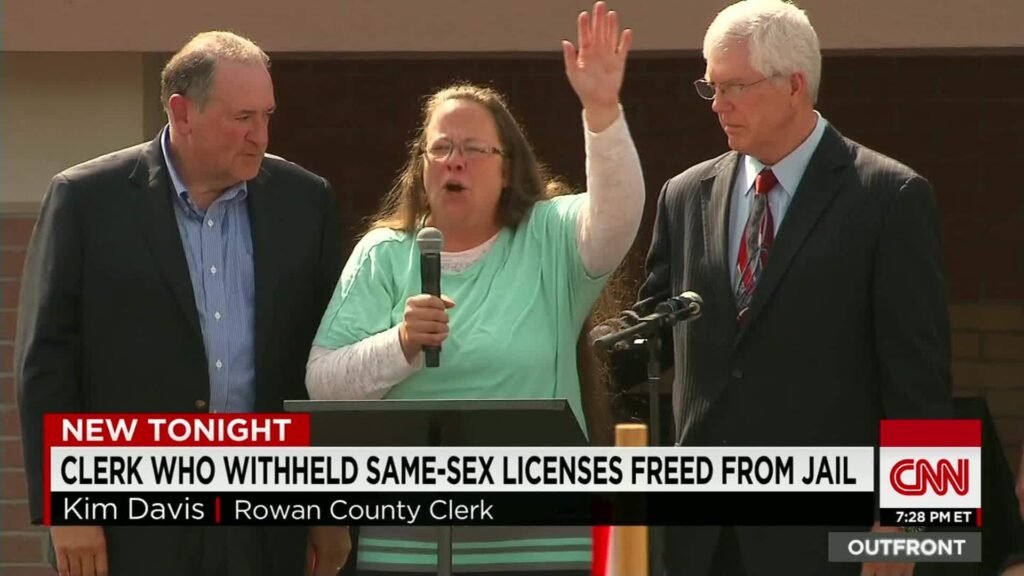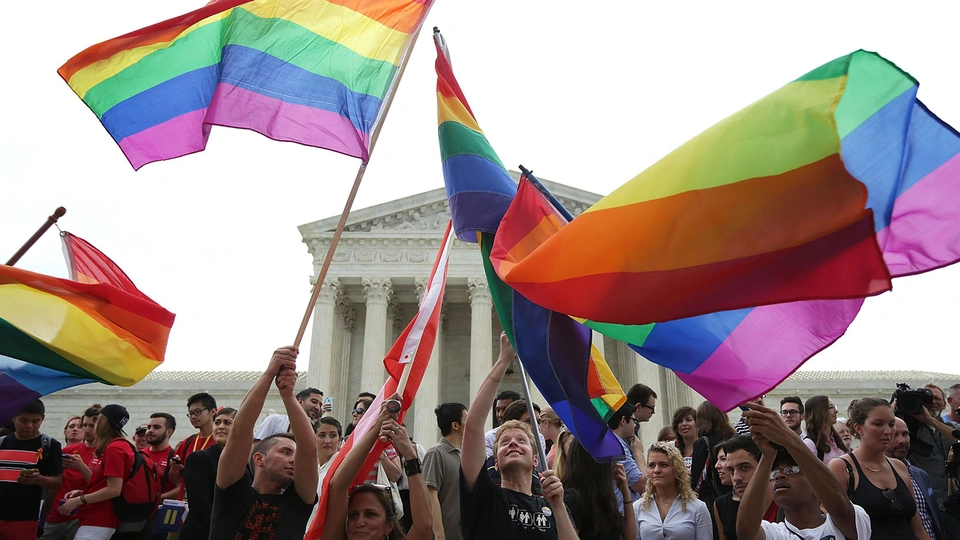
Today, November 7th, 2025, the U.S. Supreme Court is deciding whether to take up Kim Davis’s same-sex marriage petition. Kim Davis is the former Kentucky clerk who refused to issue marriage licenses to same-sex couples after Obergefell v. Hodges made marriage equality the law across the United States.
You may have seen the headlines and wondered — What does this mean for same-sex couples?
Let’s break it down in simple terms.
What’s Happening Today
The Court isn’t deciding the future of marriage equality yet.
Today’s meeting is just about whether to hear the case.
If the justices decide not to hear it, nothing changes.
If they take it, they could revisit how the law applies — either narrowly or broadly.
What Kim Davis Is Asking For
Kim Davis wants the Supreme Court to do two things:
- Overturn the lower court’s ruling that held her liable for refusing to issue licenses.
- Reconsider Obergefell v. Hodges — the decision that guarantees marriage equality nationwide.
In short, she’s asking the Court to limit or even undo same-sex marriage rights under the Constitution.
What Experts Are Sayin
Legal experts across the country agree this case is a long shot.
Most see it as unlikely the Court will overturn marriage equality.
Why?
Because reversing Obergefell would create massive legal confusion — and affect millions of couples who have built their lives, families, and futures under this law.
Even conservative justices have acknowledged that same-sex marriage now has what they call “reliance interests” — meaning people have relied on this right for nearly a decade.
What Could Happen Next
There are three main possibilities:
- 1. The Court says no.
If the Court declines to take the case, Obergefell remains the standing law. Nothing changes.
? This is the most likely outcome. - 2. The Court says yes — but rules narrowly.
The justices could focus on religious-liberty questions, such as whether government employees can refuse to perform certain duties.
Marriage equality would still stand, but it might face new challenges at the local level. - 3. The Court says yes — and rules broadly.
In a rare scenario, the Court could overturn Obergefell.
States would then be free to ban or restrict same-sex marriage again.
However, the Respect for Marriage Act (2022) would still require states to recognize marriages performed in other states.
So even in that unlikely case, marriages already performed would remain valid.
Why This Matters
This moment isn’t really about the Constitution.
It’s about religion being used as a weapon.
Kim Davis, a public official, claimed she was defending “biblical marriage.”
But faith should never be used to limit another person’s freedom or dignity.
As a Christian pastor and a married gay woman, I believe deeply that my faith calls me to love without exception, not to legislate my beliefs over others.
My Promise

If you’re in love and want to be married, I will officiate your wedding for free — anywhere in the United States.
Whether you’re two men, two women, nonbinary, trans, interfaith, or anyone who’s been told your love isn’t holy, sacred, or deserving of blessing — I will stand with you, celebrate you, and speak words of love over you.
Because love is holy.
Because love is sacred.
Because love is yours.
And if you’d prefer a non-religious ceremony, I work with a notary public who will officiate for free anywhere in Florida.
Email or DM me on Facebook.
A Closing Word of Hope
Whatever happens in the Supreme Court, one truth remains:
Love always finds a way. The laws of people may shift, but the heart of God does not.
Today’s hearing may bring uncertainty, but it also reminds us of the work still worth doing — building a world where faith is not used to harm, but to heal.


Comments are closed